Decomposers are vital to the ecosystem. These are organisms that Mother Nature has charged with breaking down organic matter to release important nutrients for vegetation, microbes, and even other decomposers.
This role is crucial to the survival of living beings on planet Earth, so what exactly is the role of mushrooms?
Are mushrooms decomposers? Are mushrooms detritivores? Do they bring benefits to the environment or are they a hazard?
Mushrooms are decomposers and play an incredibly important role in the ecosystem releasing nutrients back into the soil. While they may be delicious in a favorite dish, their role in other plants’ life cycles is vital.
In this article, we’ll look at why mushrooms are decomposers, what consumers and producers are, and the benefits of having mushrooms in your garden and compost.
- Related: What makes good soil?
Are Mushrooms Decomposers or Producers?
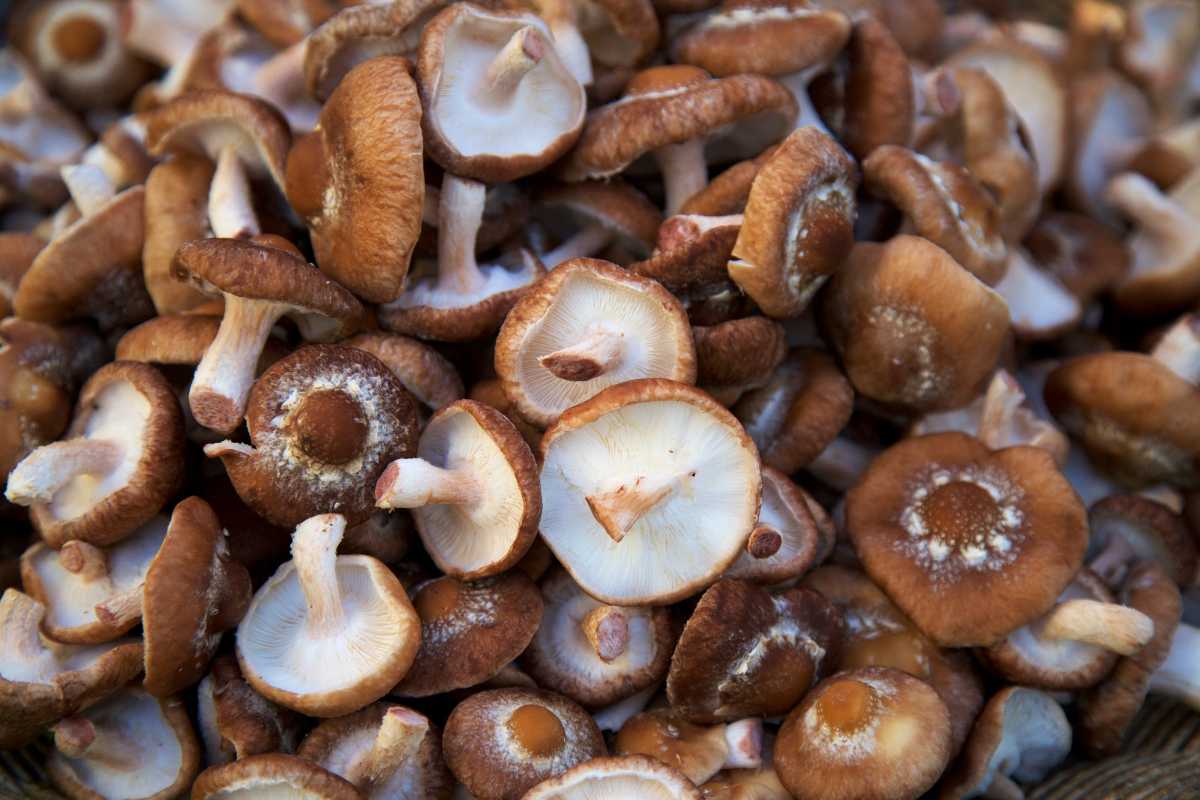
Mushrooms are considered primary decomposers. They break down dead organisms by releasing enzymes which break it down into smaller pieces. This allows them to feed bacteria and fungi which then further breakdown this material. The result from this decomposition process is a nutrient rich soil.
These fungi are a group unto themselves that are categorized separately from plants or animals because they behave differently when extracting energy for survival and this also explains why they are decomposers.
A producer will make its own food. In fact, plants and vegetables are considered producers because they use photosynthesis and sunlight to create and obtain nourishment.
Animals eat their food and then digest it. They are considered consumers.
Mushrooms are considered decomposers because they break down the cells of dead plants or animals into simpler elements. These organic nutrients then become available to the ecosystem. Examples of decomposers are fungi, bacteria, or earthworms.
Decomposers vs. Detritivores – What’s the Difference?
Interestingly enough, the two principal types of decomposers are detritivores and fungi. So, it stands to reason that detritivores are a kind or subgroup of decomposers.
What distinguishes detritivores from other decomposers is that detritivores need to consume plant and animal matter to break it down. A decomposer, like fungi or even bacteria, doesn’t need to eat matter but will decompose materials externally, like dead leaves, dead animals, and dead insects.
Another difference is that decomposers will consume some nutrients on a molecular level. Detritivores, on the other hand, will consume decaying organic matter and then excrete usable nutrients as waste.
Examples of common decomposers are fungi and bacteria. Common examples of detritivores include worms, woodlice, millipedes, dung flies, crabs, sea stars, sea cucumbers, and slugs.
How Do Mushrooms Help Decomposition?
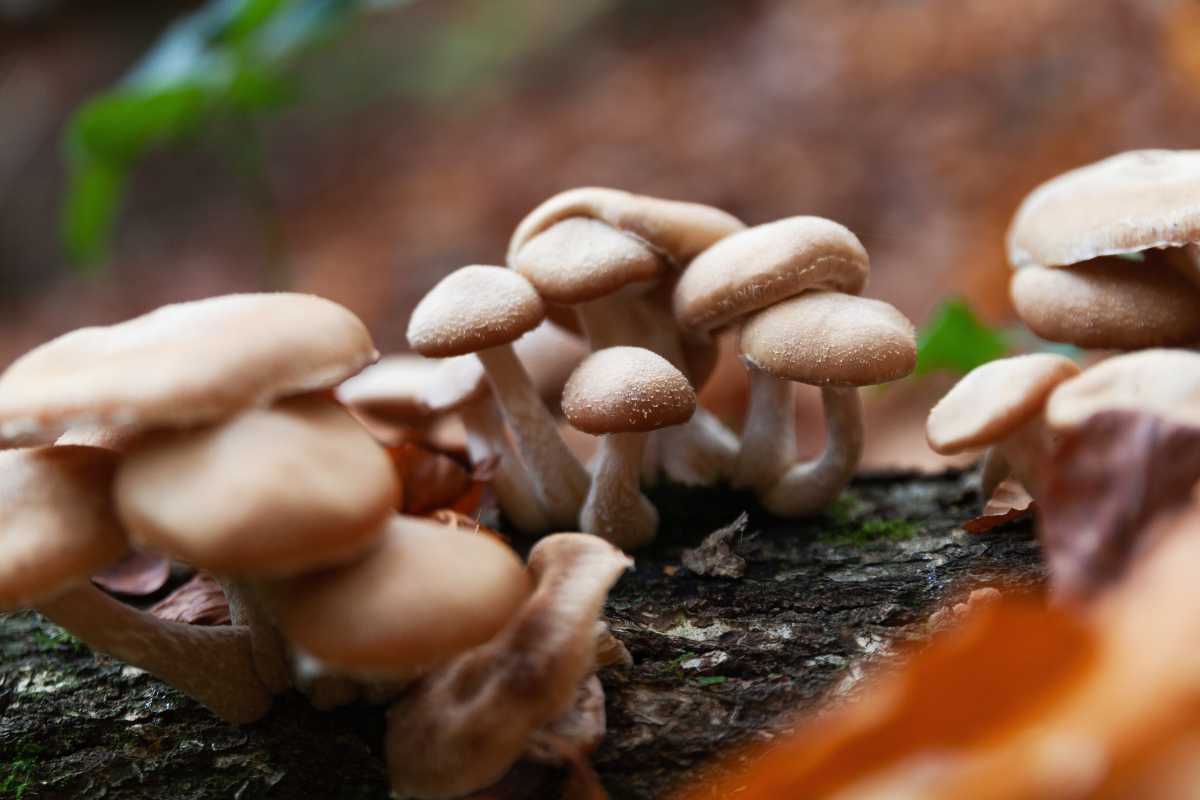
When mushroom spores land on a favorable substrate or growing medium, they will begin searching for sources of nutrition, such as decaying matter. Unlike bacteria that penetrate the surface of food sources, these decomposers can manage deeper penetration into surfaces that are harder material, such as wood.
Once in, they begin releasing those digestive enzymes that will jumpstart decomposition and the organic materials break down into basic compounds.
Specific species of mushrooms are the only organisms able to break down or decompose lignin, which protects tree cell walls and is exceptionally tough. Imagine planet earth with no natural decomposition. In no time at all, it would resemble a natural junkyard.
Fungi will thrive anywhere there is moisture, and they are protagonists in any ecosystem because of their role in turning complex compounds into vital nutrients for other life.
Benefits of Mushrooms in Garden and Compost
Since fungi do not contain chlorophyll, they cannot use photosynthesis to produce their food. That’s why they process dead and decaying material for their own growth and survival.
Decomposers, specifically mushrooms, are vital to the ecosystem. They have an indispensable role in decomposing and recycling dead material into usable compounds. Their talent lies in that they can break down or decompose organic materials into nutrients that can then be absorbed by other life forms.
Consider using mushroom compost in your garden for added nutrition in your garden soil and for the cultivating of your plants. Mushroom compost is an organic fertilizer that offers the advantage of being slow-release.
Mushroom compost is produced by mushroom farmers using other organic materials like hay or straw, poultry or horse manure ,and corn cobs and hulls. However, every mushroom grower will have his own recipe, so organic ingredients may differ among individual farmers.
Let’s take a look at some of the main benefits of mushrooms in your garden and compost.
1. Offers Nutrients to Plants
Mycorrhiza is the term used to describe the symbiotic relationship that certain mushrooms build with other plants. The fungi’s roots or mycelium interlock with the roots of other vegetation.
By intertwining with the plants’ root systems, they obtain necessary plant-produced carbohydrates like glucose and sucrose that they require for growth.
The plants also are on the receiving end of this relationship, receiving access to iron and phosphate ions that are present in the fungi root system (the fungi mycelium of the mycorrhizal fungus).
Science estimates that over 95% of plant types have some degree of a mycorrhizal relationship and some depend on it for survival.
2. Versatility of Use
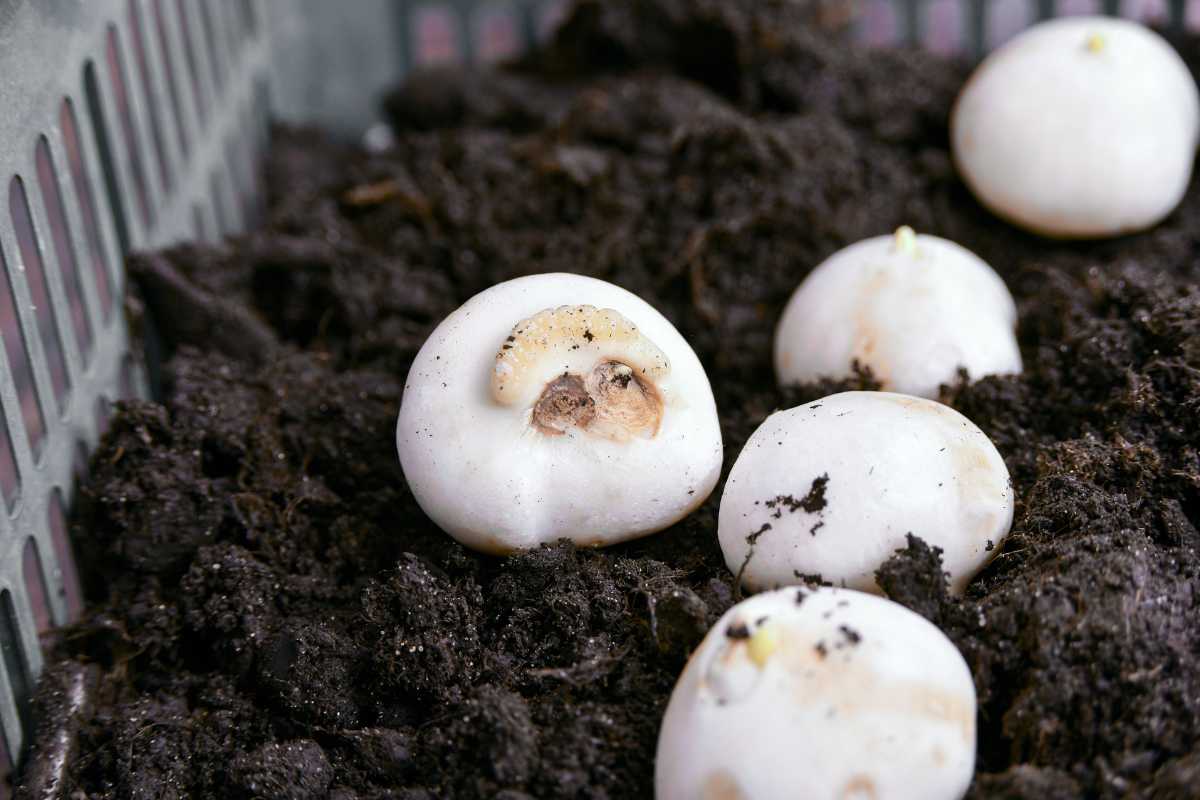
There are numerous ways to utilize mushroom compost. You can mulch, amend garden soil, or side-dress plants for fertilization. It can even be incorporated directly into planting holes as a top dressing.
3. Eco-friendly
Another important function of mushrooms in the garden is their parasitic role. Often found on trees and plants, they can hasten the demise of sick vegetation which will allow for new life to emerge.
Saprophytic fungi have the special talent of speeding up decomposition with their special enzymes, which is an advantage in any garden setting.
Furthermore, contrary to popular belief, mushrooms will not really harm vegetation, and by using mushroom compost you will avoid using harmful synthetic fertilizers and chemicals.
Plus, not only are mushrooms fundamental in the decomposition and recycling of nutrients for plant life, but they are also a source of food for certain herbivorous mammals.
Some animals may depend primarily on fungi for survival, while others will resort to fungi for a good portion of their diets. This is especially true in winter seasons when other vegetation sources may not be available.
4. Facilitates Moisture Retention
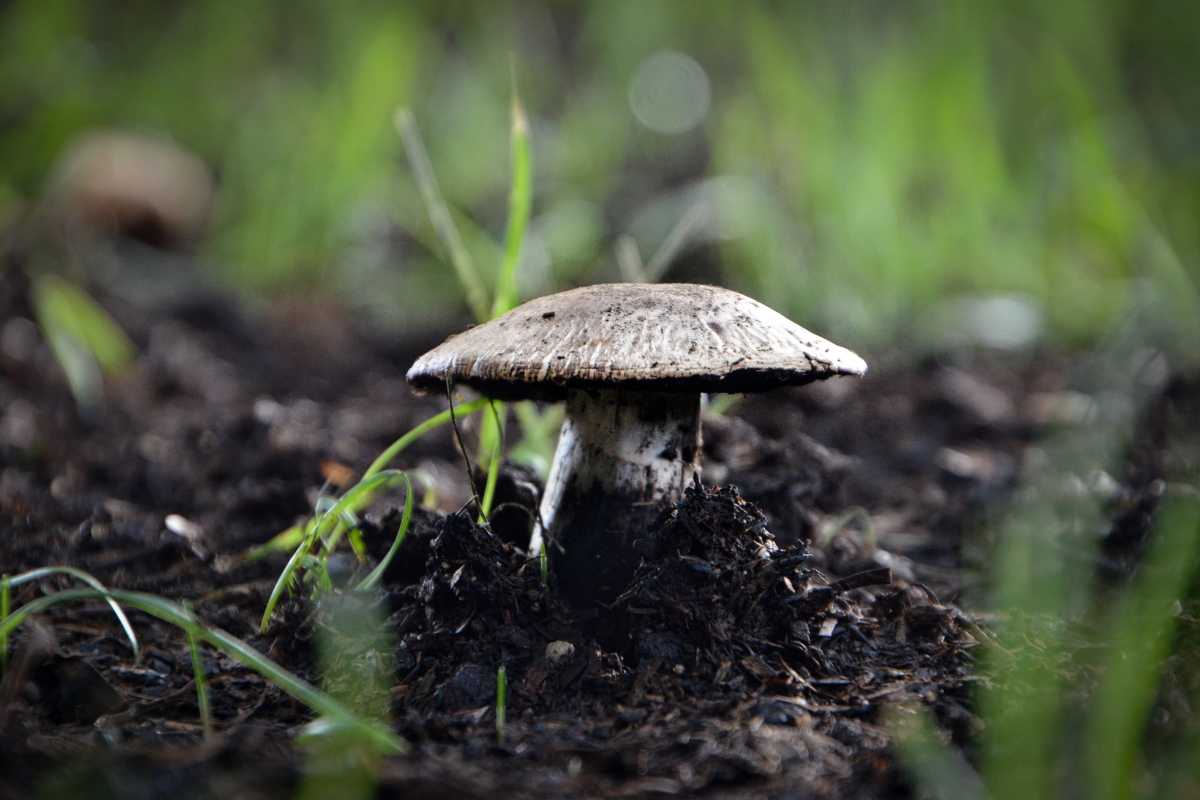
If you decide to use mushroom compost for mulching, you will be aiding in your soil bed’s ability for moisture retention.
A natural mulch, instead of an inorganic mulch like plastic, will help with underwatering and overwatering issues, making for healthier and stronger plants.
5. Wards Off Pests and Weeds
Because mushroom compost will be sterilized through the use of steam, you won’t be dealing with pests or weeds that may already have invaded compost such as manure.
Cleaner mushroom compost will aid in keeping your garden plants disease-free, healthier, and stronger, and you won’t be battling weed infestations from the get-go.
Healthier plants will also have an increased ability to fight off any viral infections in the environment.
6. Prevents Soil Compaction
Mushroom compost, due to the very nature and texture of mushrooms, aids in preventing soil compaction. Soil compaction is deadly for drainage issues as it prevents proper water drainage, placing species at risk for root rot.
Soil compaction also harms plant species that have taproot systems, because the roots are not able to penetrate soil comfortably.
The use of mushroom compost can be a solution, especially if you have heavy or clay-based soil where there is difficulty in drainage and aeration.
7. Cheap Fertilizer Option
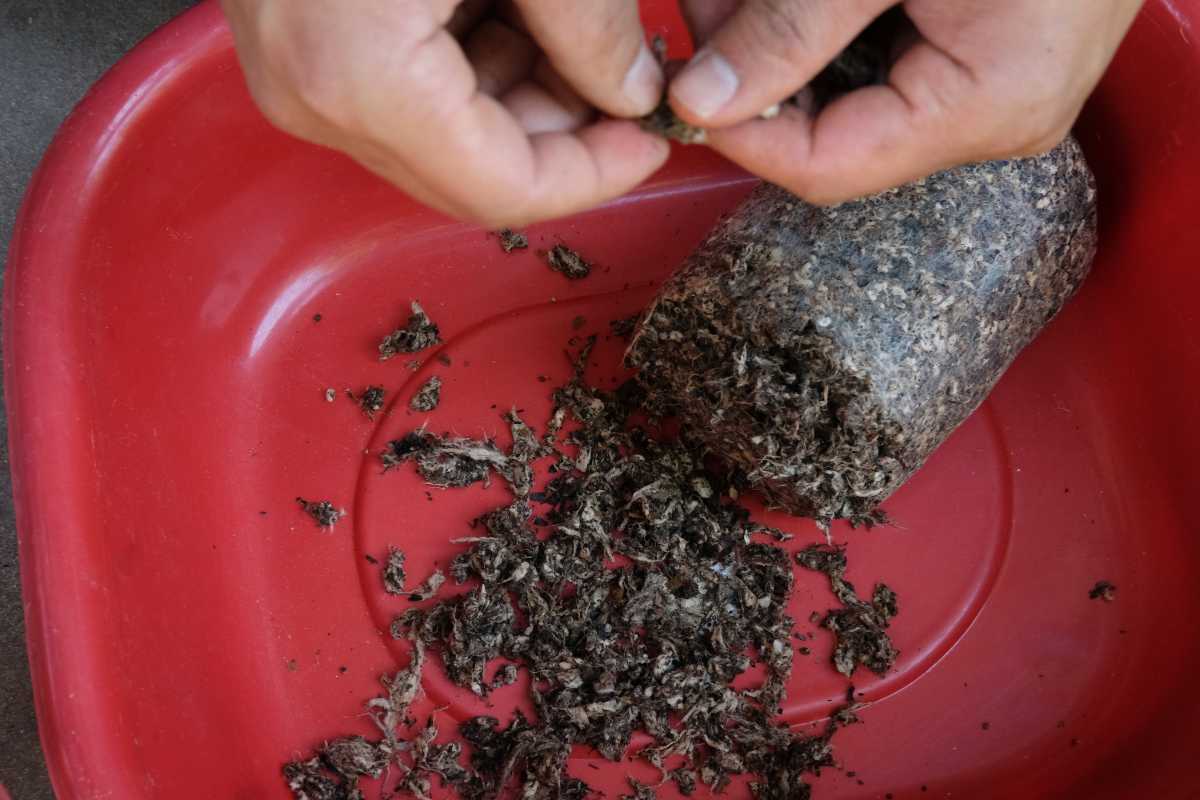
Mushrooms are also an inexpensive fertilizing option. You can amend garden soil with mushroom compost as it will furnish nutrients for the healthy cultivation of your plants, vegetables, and flowers.
Why Are Decomposers Like Mushrooms Considered Heterotrophs?
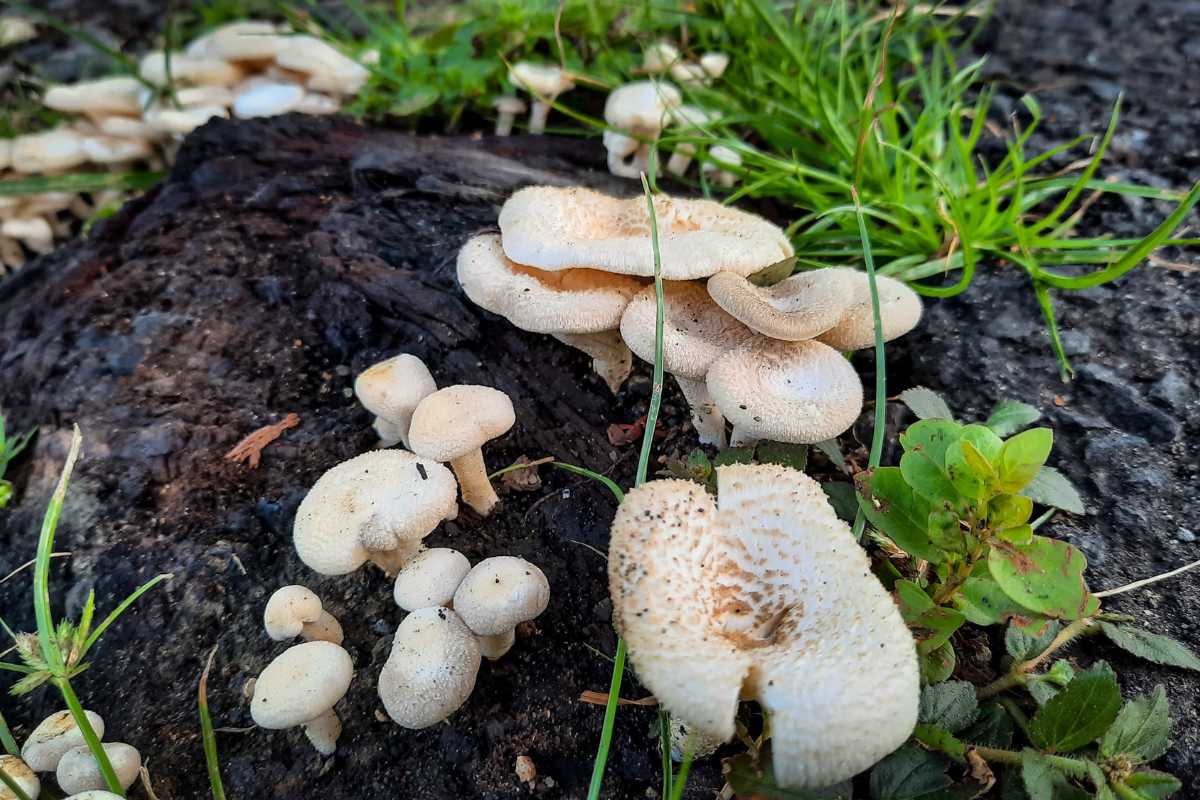
Autotrophs and Heterotrophs are classified based on how they get their food for survival. An autotroph is an organism that can produce its own food, while a heterotroph is an organism that receives or takes food from other organisms.
Decomposers like mushrooms are heterotrophs because they consume decaying and dead matter, and then recycle it back into the soil in the form of important nutrients for the ecosystem.
Autotrophs are generally referred to as “producers”, while heterotrophs are referred to as consumers because they eat food. If a heterotroph limits its food ingestion to plant life, it is a herbivore. If it eats animals, it will be known as a carnivore.
What Types of Mushrooms Are Decomposers?
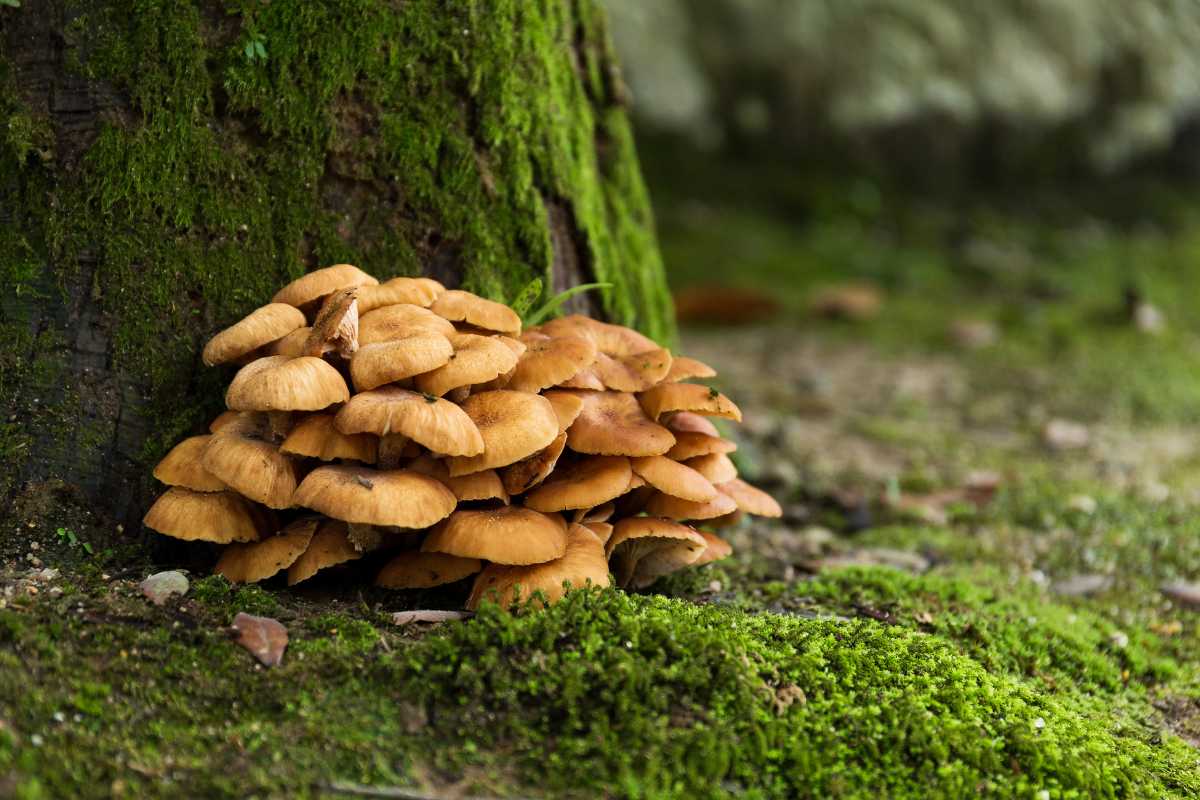
There are estimates of over a million species of fungi, even though only 140,000 fungi have been cataloged.
Out of the known types of fungi, there are two basic types of decomposers: primary and secondary.
Primary decomposers include:
- Maitake Mushrooms (Grifola Frondosa) for wood-decay
- Oyster Mushrooms (Pleurotus spp.)
- Shitake Mushrooms (Lentinula edodes) are edible!
- Wine Cap Mushrooms (Stropharia rugosoannulata) is a litter-decomposing fungus
Secondary decomposers use the by-products of primary decomposers, as well as fungal, and bacterial metabolic products. These secondary decomposers thrive in environments that are a bit more complicated, like decaying soil or wood and are often used in specific composts.
Cultivated secondary mushrooms include
- Button mushroom (Agaricus Bisporus)
- Paddy Straw Mushroom (Volvariella volvacea)
Is a Mushroom a Decomposer Final Thoughts
Decomposers play a crucial role in the ecosystem and the food chain as they ensure the flow of energy throughout the environment. They are capable of breaking down numerous dead and decaying organisms into simpler compounds, and recycling and supplying nutrients to other forms of life.
That energy source provider role of mushrooms in the garden should never be underestimated, both for their role in healthy recycling and in fertilizing, as well as in feeding vegetation and plant life vital to our survival.
Here are other articles that you might be interested in:
Sources:

